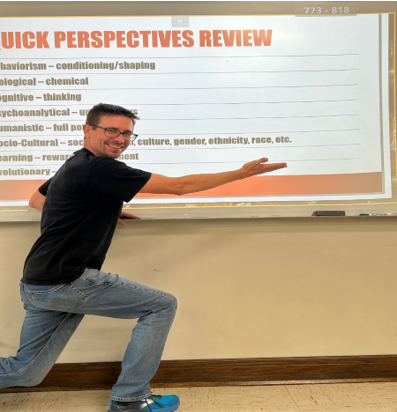Society’s Normalized Drug: Coffee
May 12, 2023
Did you know that coffee has been previously banned four times in Sweden? In the 1800s, coffee beans were seen as a threat to the lives of humans and cultural influence in Sweden. Even with this, the beans could not be kept out of the hands of coffee-thirsty humans. What was so addictive that humans went to illegal lengths to gain this substance?
Coffee is in every corner of the world. It is consumed throughout all times of day, whether it be breakfast, a casual lunch, or a late-night treat. For centuries, the effect of a singular substance in coffee has been observed to have short term, long term, physical and mental effects on humans.
PubMed Central a database from the National Institute of health says, “caffeine is the most commonly used drug in the world.” Humans know that coffee affects us in this way, but it is still consumed without worry. But, why is that?
There are many differing explanations to this question. According to the scientific facts coming from Alina Petre, a registered dietitian writing for Healthline, the caffeine in coffee is a psychoactive substance that works as a stimulant. This means that it affects the central nervous system and mental processes of the brain. Physically, coffee increases “metabolism, enhances exercise performances and boosts your mood.” Mentally, caffeine “increases alertness, concentration, and motivation to work.” Caffeine is absorbed by both your stomach and your brain. In turn, it blocks the cells in your brain from letting you think that you are tired, which is one of the reasons why people rely on coffee to wake themselves up.
Subsequently, there are reasons that have no specific scientific tie to them, but instead they are related to how it makes a person feel emotional. As Abigal Zuger, a publisher for the New York Times writes, coffee is drunk for enjoyment and comfort across all subcategories of humans, whether it be teenagers, young adults or seniors. A warm cup could bring back feelings of a happier time or provide a sense of warmth literally and metaphorically. These feelings increase motivation and a person’s attention span.
Even though coffee causes feelings of enjoyment, this enjoyment can turn into a dependency and furthermore be classified as an addiction if abused. Following along with PubMed’s words, organizations such as the World Health Organization and the American Psychiatric Association have classified caffeine dependency as a “Caffeine Dependence Syndrome, Caffeine Use Disorder, and Substance Use Disorder.” When people have a heavy intake of coffee, their tolerance to caffeine increases. This means that more coffee will be needed to produce the desired stimulating effect when consuming it to feel those effects of stimulation. Then, because of the mass consumption of caffeine, the body becomes so dependent on it and its effects that when not consumed, withdrawal effects could potentially be displayed. These effects have a variety of symptoms including, “headache, fatigue, difficulty concentrating, and dysphoric mood.” This adds on to why people find it easier to live by having a cup of coffee rather than none.
In a study done by Hughes Jr and his team of psychiatric colleges, over 50 percent of 162 US adults have had an unsuccessful effort to lower their usage of coffee, while 14 percent of these adults still drink it despite knowing the harm it causes. However, some people in the real world do not even know that they have this sort of dependency because of how regularly it has been done and normalized in the environment that we live in.
Understanding what makes coffee so appealing to people can in turn help to prevent symptoms that affect our “performance at work, home, or school,” by having them be aware of it and in turn, try to reduce their intake. These attempts to reduce coffee could have great effects on how our body operates, whether it be noticeably external or not.







